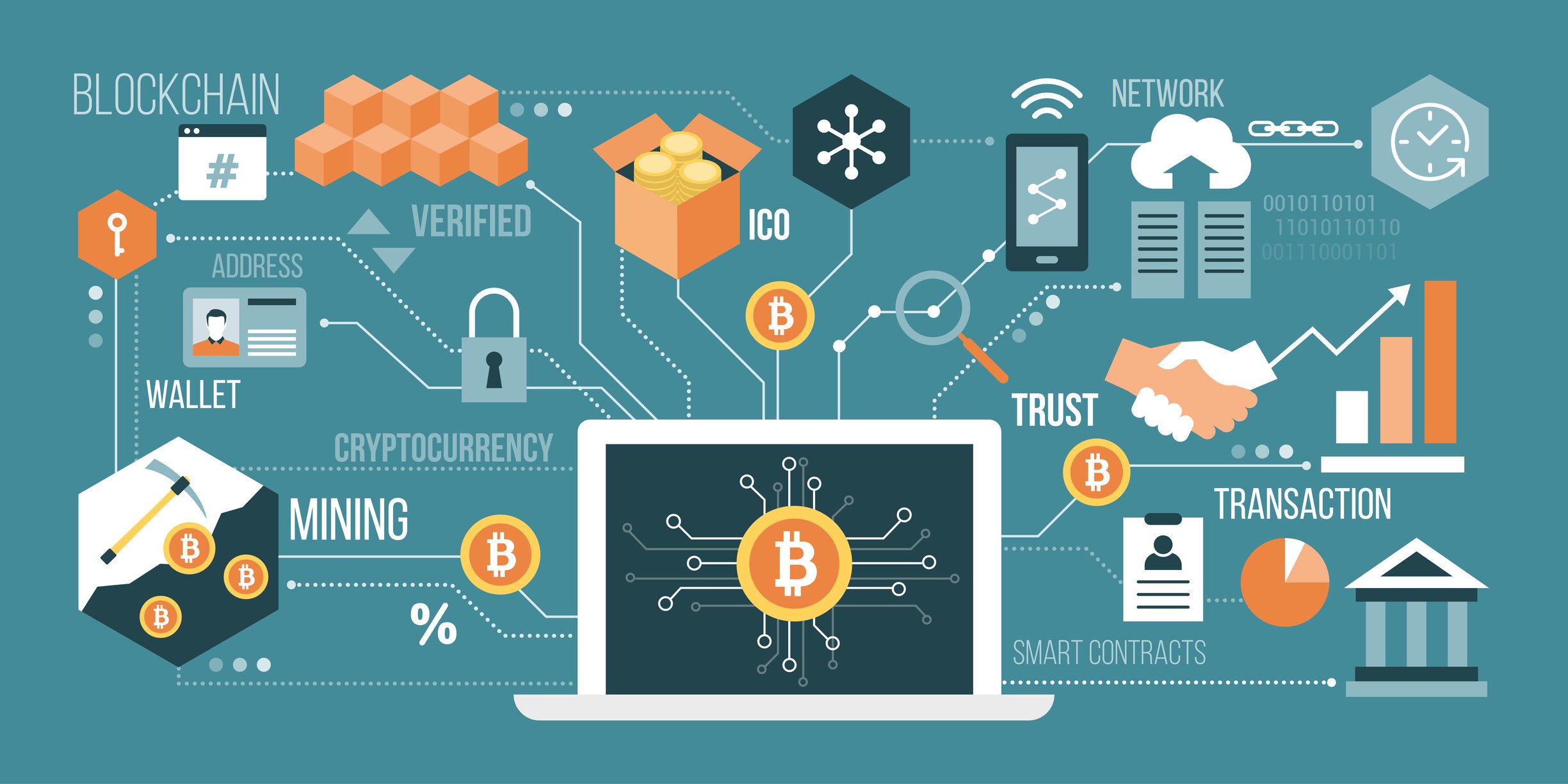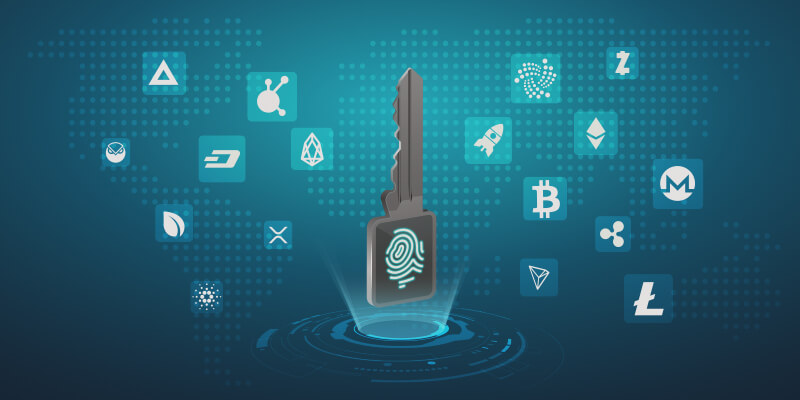Cryptocurrency Cheat Sheet
What is Cryptocurrency
In simple terms, a Cryptocurrency is a new form of digital money. You can convert your traditional euro into a form of Cryptocurrency, but the use of now is not the same. At the moment, Cryptocurrency is used as an investment for future gains. But, when it becomes mainstream, you could potentially use it as a currency to buy stuff online as traditional money does.
Unlike traditional money, cryptocurrencies have eliminated the bank as a middleman and operate in a decentralised system. It relies on a technology called blockchain, which is decentralised (no entity is in charge). Each computer on the network has to confirm transactions.
History of Crypto
As many already know from the news, Bitcoin was the first-ever Cryptocurrency. Bitcoin was the first crypto to use blockchain development by a person named Satoshi Nakamoto. Bitcoin was launched in 2008, and its intentions were to be a 'peer-to-peer' network for electronic money.
There is a process called 'mining' in which cryptocurrencies can be created. This is very different from traditional mining as it entails using powerful machines to solve complicated problems. The Bitcoin reward for mining a block decreases as time goes on. The reward halves every 210,000 blocks that are mined. It started at 50 in 2009, but as of May 2020, its 6.25 blocks per coin. Even though the vast increase in computing power (cost) and puzzles are trillions of times more challenging, Bitcoins rise in price has

What is Blockchain
A blockchain is a piece of technology that is used as a database. It is managed by computers on the network. Information held on this database is distributed between all computers for there to be cohesion. These computers (also known as nodes) are used to create and maintain their blockchain by transmitting entries. Entries are the data that is published into the blockchains. These entries are typically the information of people transferring cryptocurrencies from one user to another across the network.

E.g. If you send some Bitcoin to your friend, you are creating an entry on the Bitcoin network. The nodes will then check to see if you made this transaction earlier and if not, it would accept the entry. This would then lead to a credit in your friend's account and debit it to your account. The reason for the check is to ensure that 'double-spending' does not occur. Since all computers have the transaction history, unlike a single entity of a bank, the transaction will fail if the transaction is already completed on the network. This has helped cryptocurrencies have no issue with transactions being misread becoming corrupt.
How many and market value
There are more than 6,700 different cryptocurrencies trading publicly. Cryptocurrencies continue to flourish, raising money through initial coin offerings, or ICOs. The total value of all cryptocurrencies was more than €1.6 trillion. The most popular digital currency, Bitcoins, was pegged at about €969.6billion.
Benefits of Cryptocurrencies
Not affected by inflation – With traditional money, inflation has led to many currencies losing their value, but cryptocurrencies are different. When cryptocurrencies are released, there is a fixed amount of that coin allowed on the market. E.g., Bitcoin has only 21 million Bitcoins on the market. While its demand increases, each coin's price will increase and therefore, in the long run, it will prevent inflation.
Self-managed – Governing and maintaining currencies can be very expensive and is a huge factor for its development. As discussed, the cryptocurrencies transactions are stored by users on their hardware. Miners are then paid (by transaction fees) to keep transaction records accurate, which results in maintaining the reliability of the currency and records decentralised. The decentralisation helps prevent there from being a monopoly, so no single organisation can control the coin's flow and value. This has kept cryptocurrencies stable, unlike fiat currencies which are governed by the government.
Cost-effective/Privacy – A significant use for cryptocurrencies is the use of transactions to others. The transaction fees are minimal or zero due to the elimination of third parties like PayPal and Visa.
The blockchain ledger made up of mathematical puzzles is very difficult to decode and results in cryptocurrencies being more secure than electronic systems that banks and everyday users use.

Disadvantages of Cryptocurrencies
Mining effects on the Environment – Mining cryptocurrencies required a lot of power, resulting in energy-intensive. The biggest culprits are Bitcoin miners. Mining Bitcoins can't be done on ordinary computers, so highly advanced technology can solve the problems. China has the majority of Bitcoin miners and uses coal as their primary source to produce electricity. Bitcoin miners use more electricity than the whole of Argentina annually.
There is no cancellation refund – If there is a dispute or someone accidentally sends money to the wrong person/address, the coins can't be refunded. Without a centralised entity, there isn't anyone that can cancel or law that requires these platforms to return the money. Therefore, one can easily send funds for a good/service they never received and won't prove who they sent it to.
Data Losses – The developers intended to create a virtually untraceable source code and strong anti-hack system. But if the user lost their private key, there is no getting it back, and all the financials the user had in the wallet would be gone.
The future of Cryptocurrencies
If Cryptocurrency is going to be the future, its success will depend on 4 conditions: consumer demand, corporate champions, amenable regulatory environment, and appropriate technology.
The adoption and recognition from the public and widespread acceptance by consumers as a viable form of money is a key point, this means it will have to overcome regulatory challenges and practical technical along with the lack of trust the governments and governing bodies have for understanding how to use them. Their virtual complexity compared to conventional currencies will likely deter most people, except those that understand the field of technologically.


